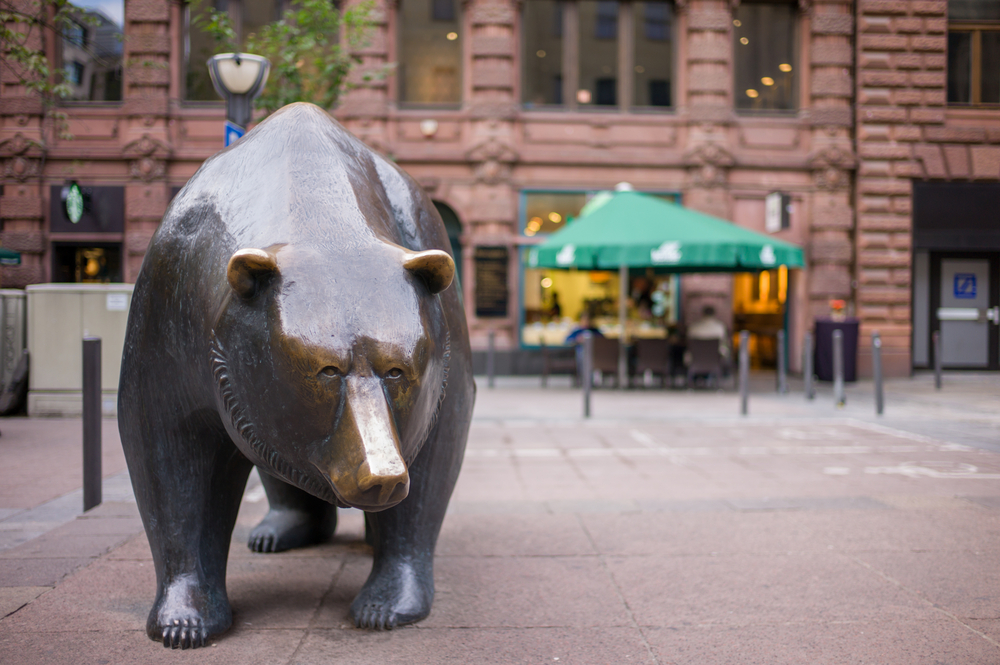I spent last week in Charleston, South Carolina, at The Oxford Club’s Private Wealth Seminar at the beautiful Hotel Bennett.
As you can imagine, a lot of our conversations revolved around bear markets in general and this year’s in particular.
Bear markets, of course, are defined as a stock market drop of 20% or more.
Bull markets, in turn, entail a market rise of 20% or more.
History shows that every bull market is followed by a bear market. Just as every bear market is followed by a bull market.
Bull and bear markets are as normal as the changing of the seasons. But they are far more unpredictable.
That’s why so many investors find them terrifying.
I’m not one of them, however.
I confessed to the attendees on Day One that there must be something wrong with me psychologically.
The lower the market goes, the more excited I get.
When stocks crashed in 1987, I felt like a kid in a candy store. All these incredible treats… and everything is on sale!
My clients did not feel that way, however. They were petrified.
I quickly learned that I had to curb my enthusiasm and speak to them like a trusted doctor going over their lab results.
And yet… most were completely averse to taking new positions or adding to existing ones.
In my own account, I picked up bargains galore while they were still dirt cheap, convinced that in the future I’d be glad I did.
And I was.
In the decades that followed, I bought high-quality companies during the good times too.
But I accelerated my buying whenever stocks hit the skids, as they did in the bear market of 1990, during the dot-com collapse from March 2000 to October 2002, after 9/11, during the financial crisis and Great Recession – and again during the COVID collapse.
Today we are in the midst of the bear market of 2022. And people ask me, “What are you doing with your own money?”
“I’m buying,” I say.
“But don’t you think stocks will go lower?”
Stocks can always go lower. They can go lower in a bull market, a flat market or a bear market.
They can go lower than you expect and for longer than you expect.
I’m a buyer anyway.
Why? Here are five reasons…
-
- I look forward not back. Too many investors obsess over how much their portfolios are down from the peak. (While seldom recalling that they never would have hit that peak if they didn’t own equities.) I’m more interested in the actions I can take now that will determine what my portfolio will be worth at the next peak.
- I have a long-term time horizon. I don’t have money I need in the short term in the stock market. (And you shouldn’t either.) I won’t be forced to sell at unfavorable prices, even if stocks go lower in the near term.
- I have an asset allocation. Because I’m diversified into real estate, high-grade bonds, high-yield bonds, Treasury Inflation-Protected Securities (TIPS) and precious metals, I’m not betting the farm on the stock market.
- Over the long term, I know the odds are in my favor. Look at the long-term chart of the S&P 500 below. Ask a class of fifth-graders to point out where the best buying opportunities were. After about five seconds of analysis, they will point to each of the bear markets. As comedian Jeff Foxworthy would ask, “Are you smarter than a fifth-grader?”

-
- I understand that investing is a game. It involves the transfer of money to people who have a plan and can execute it from those who do not or cannot. You don’t want to be in the latter group.
Look, I realize it’s unpleasant to see the value of your stock holdings fall temporarily.
After all, this is real money we’re talking about.
But have some perspective…
Start at any date over the last 100 years… U.S. stocks were higher in one year 74% of the time, higher in five years 86% of the time, higher in 10 years 94% of the time and higher in 20 years 100% of the time.
In a bear market, it’s okay to feel anxious, afraid or regretful. Even embarrassed, ashamed or angry.
You don’t have to be an unfeeling automaton to be successful in the stock market.
Note, however, that I said it’s okay to feel those emotions.
It’s another thing entirely to act on those emotions and run to cash, promising yourself that you’ll get back in later, when things look better.
When things look better, stocks will be higher. And probably much higher.
As Warren Buffett wrote in a Wall Street Journal op-ed during the 2008 financial crisis…
I haven’t the faintest idea as to whether stocks will be higher or lower a month – or a year – from now. What is likely, however, is that the market will move higher, perhaps substantially so, well before either sentiment or the economy turns up. So if you wait for the robins, spring will be over.
The great irony of stock market investing is that when the outlook is negative, the consensus is pessimistic and share prices are low… that’s the best time to buy.
It never feels that way, of course. But that doesn’t stop it from being so.
Good investing,
Alex
